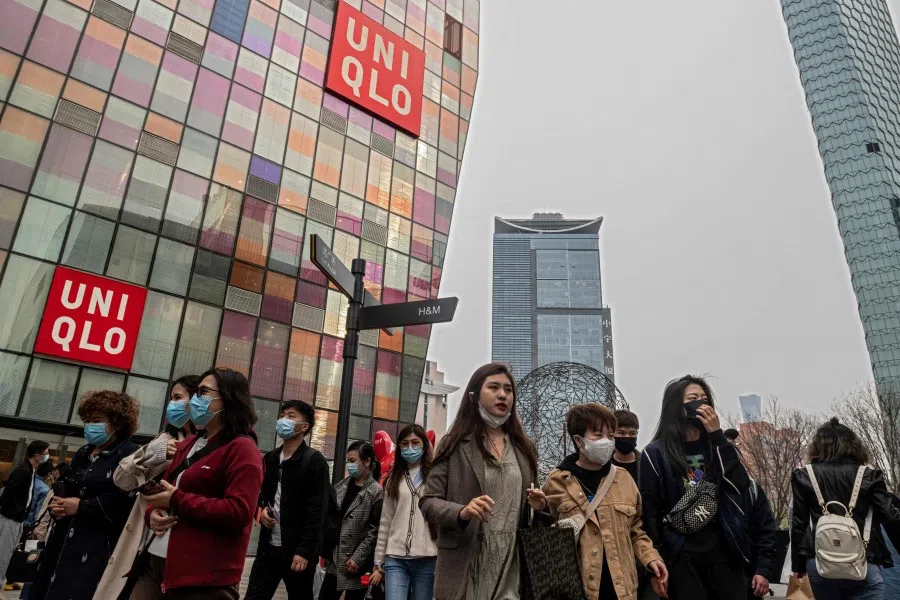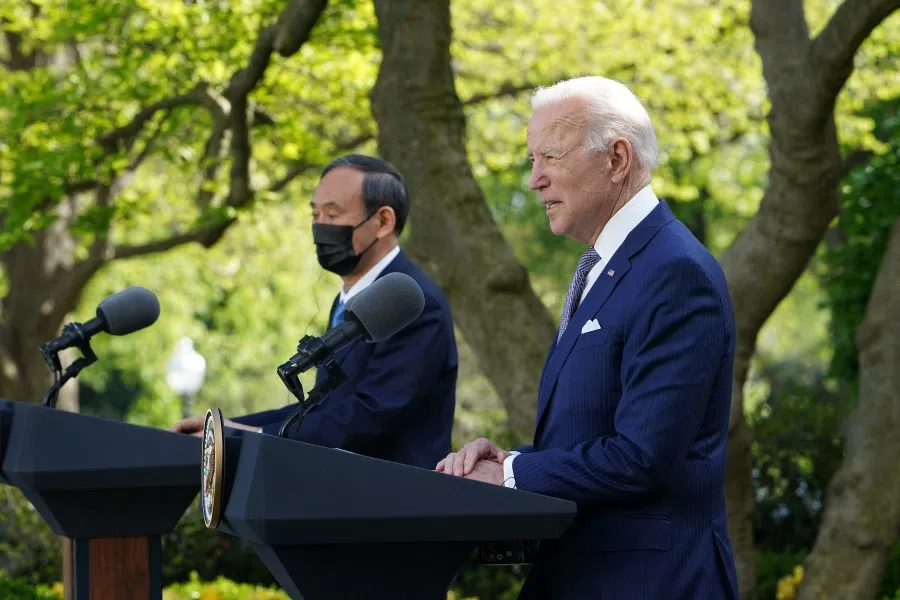Chinese researcher: No one can reverse the shrinking economic gap between China and the US
Researcher Chen Hongbin notes that the economic gap between China and the US is closing. But the crux is not when China will overtake the US, but how the US will cope with the change. Its previous high-pressure tactics may have worked against the Soviet Union and Japan, but China will be a different kettle of fish.

Figures released by the National Bureau of Statistics of China on 28 February indicate that going by last year's average exchange rates, China's GDP in 2020 was about US$14.73 trillion. And according to the latest figures from Nikkei, the US's current-dollar GDP in 2020 shrank 2.3% year-on-year from 2019, down to US$20.93 trillion. With this rise in one and drop in the other, China's GDP is now 70.4% that of the US, 3.6 percentage points higher than in 2019. This makes China the economy that is closest in scale to the US, post World War II.
Matter of time for China to overtake the US
At the peak of the Cold War, the Soviet economy was only about 40% of the US economy. Subsequently, at one point in the late 1980s, the bubble effect pushed the Japanese economy to almost 70% of the US economy. At the time, there was an explosion of confidence among the Japanese, who predicted that at some point, the Japanese economy would overtake the US to become the largest economy in the world.
Unfortunately, when the bubble subsequently burst, Japan's economy was unable to recover and remained stagnant for years; in 2019, Japan's economy slid to below one-fourth of the US economy. This proportion is set to drop even further for 2020, because Japan's economy shrank 4.8% last year, while the US drop was 3.5%.
According to the World Bank's forecasts for the growth of major economies this year, China is at 7.9% and the US is at 3.5%, so as long as the US's growth rate is less than 70% of China's, then the gap between China and the US will shrink even more. In fact, since the second half of last year, many economic research institutions around the world are bringing forward their forecasts that China's economy will overtake the US by 2028, while China's think tanks forecast 2032.
...what China is seeking is to surpass itself, because its ultimate goal is to build a powerful modern socialist country, and overtaking the US is just one consequence of this process.

In fact, it does not matter which year China's economy overtakes that of the US. What does matter is that it fits historical development trends, because countries that start later and actively throw themselves into globalisation and pick up the chase would actually have a better chance of success as many external conditions are already met. And countries in the lead must get used to and accept this state of affairs.
The Chinese government is not focused on whether or when the Chinese economy will overtake the US; what China is seeking is to surpass itself, because its ultimate goal is to build a powerful modern socialist country, and overtaking the US is just one consequence of this process. And even if it does happen sometime in the future, the Chinese would not be smug or close themselves off.
This is because two centuries ago, China was once the world's largest economy, accounting for as much as one-third of the global economy. Also, China's population is about 4.3 times the US population, hence there still exists a significant gap in per capita terms, which China will work hard to close. At the same time, China will continue to improve its economic framework and raise the quality of its economic growth. From this standpoint, China has its work cut out.
How will the US cope with the change?
The question is, how will the US view the shrinking gap between the two economies? Obviously, it will be difficult for the US to accept such a reality, because it has held that position for over a century; its sentiments are understandable.
Since the previous Trump administration, the US has seen China as its most important competitor. Current US President Joe Biden said that he would not let China overtake the US on his watch. There is nothing wrong with what Biden said, but the important thing is: what will happen after Biden? Going by what US officials have said so far, such a scenario fills US leaders with a sense of crisis, and they are taking all possible measures to extend the US's advantage over China, such as ramping up on infrastructure development.

Before this, Biden also said China will "eat our lunch" if America doesn't "get moving" on infrastructure. That warning is enough to show how seriously the White House is taking the China-US competition. The Trump administration pulled out all the stops when it came to relations with China, using extreme pressure methods to contain and suppress China. While the Biden administration does things differently, its basic attitude is completely the same.
Based on track record, the tough measures by the US against its opponents is expected. The values and social systems of China and the US are vastly different, and the US sees China's strong growth as an advancing enemy, to the point of paranoia. But while this is overreacting to some extent, it is understandable.
The telling Japan example
A look at the US's acts of suppression against Japan yields a clue. Japan and the US hold the same values of Western countries, and their social systems are basically the same. Japan does not present any military threat to the US; on the contrary, the US has the most military bases in Japan, which makes it protected by the US.
Even so, the US also could not accept Japan's strong economic growth. Through the Plaza Accord, The US achieved a significant depreciation of the US dollar in relation to the Japanese yen, and forced Japan to open up its domestic market through its high-handed, high-pressure negotiations. Both sides signed a series of agreements where Japan committed to reducing exports to the US under the fancy term "autonomous restrictions", leading to a serious setback to Japanese exports to the US, and a significant reduction in Japan's trade surplus with the US.
During this period, the US derided Japan as "weird"; nine US Congress members even smashed a Toshiba radio with sledgehammers on Capitol Hill to show their strong unhappiness with Japan. With all these efforts by the US, the threat posed by Japan soon disappeared, and the US became the only winner from the end of the Cold War.
When it comes to the crunch, Japan would not dare to burn bridges with the US through public opposition - after some to-and-fro, Japan would still accept whatever the US asked for.

Now, some senior US officials think the same tactics that brought down the Soviet Union and forced Japan to crumble without a fight cannot fail against a rising China. In fact, the fall and disintegration of the Soviet Union was mainly because it engaged in an arms race with the US when it was not strong enough, and wrongly employed the dysfunctional strategy of militarising the Soviet economy in order to vie with the US for global dominance and influence. Its serious missteps in political reform also led to its fall.
Japan, on the other hand, is protected by the US. When it comes to the crunch, Japan would not dare to burn bridges with the US through public opposition - after some to-and-fro, Japan would still accept whatever the US asked for.
The US has paid - and will continue to pay - a heavy price for the serious social divisions caused by partisan politics, as well as social ills such as racism.
China will present a tough challenge
But China is obviously a different sort of opponent. It has no intention of starting an arms race with the US, nor will it be subservient to the US like Japan. China is a fully independent and autonomous socialist power, and as long as it does not make disruptive strategic errors, the world can look forward to its continued growth. There is much room for improvement in China's urbanisation, and its middle-income group accounts for less than 30% of its population, leaving tremendous room for growth in the future.
There are also many gaps to fill in China's infrastructure. All this means that China will maintain medium to high growth for some time, while nobody can guarantee that the chaos that has happened in the US over the past year or so will not recur. The US has paid - and will continue to pay - a heavy price for the serious social divisions caused by partisan politics, as well as social ills such as racism. In this context, the desire of the White House to maintain the economic lead over China may be nothing more than a pipe dream. No politician or policy can change the shrinking economic gap between China and the US.





